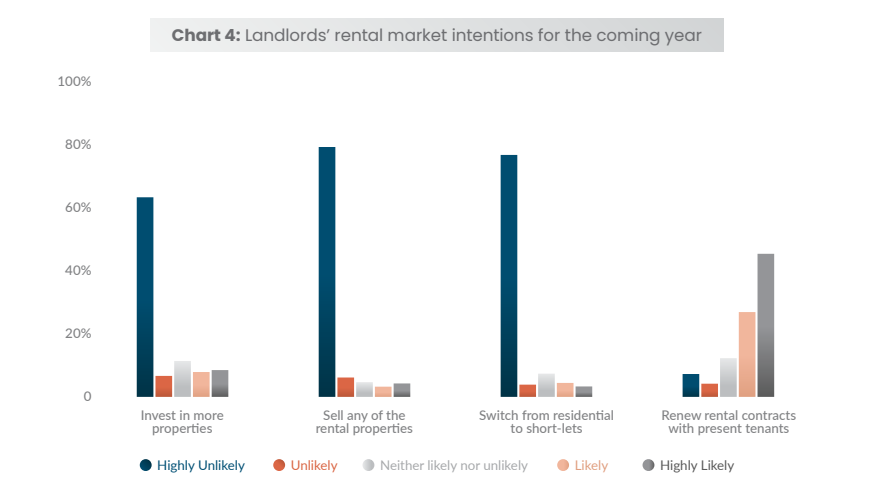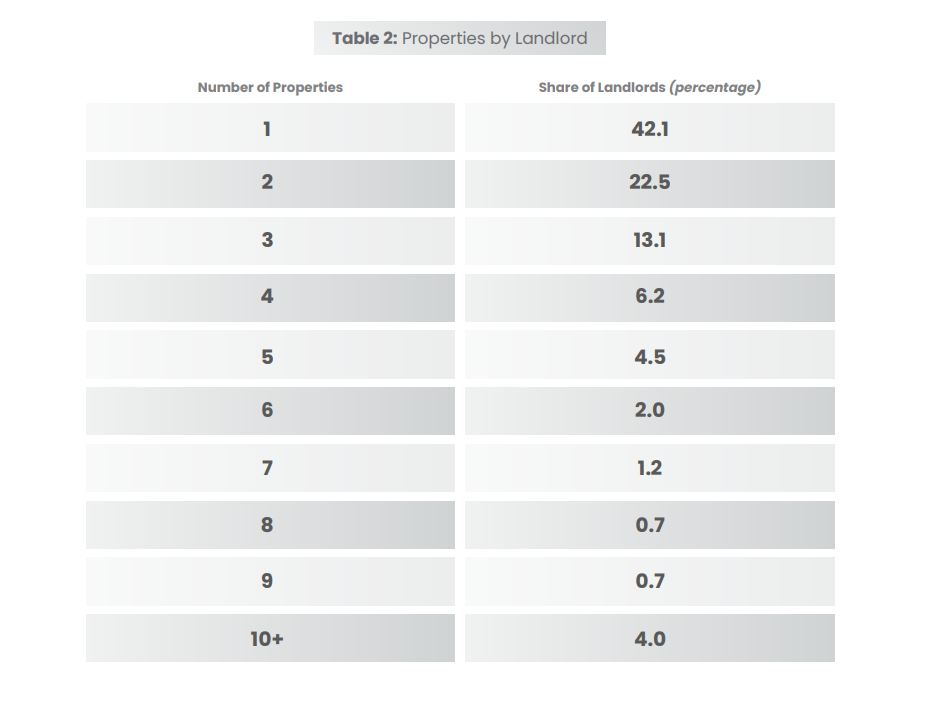70 per cent of current landlords in Malta do not intend to invest in further property in addition to their current portfolio or to switch to short-term rentals in the next 12 months.
On the other hand, only 16 per cent said that it is likely that they would increase their portfolio size. These landlords included both established as well as those who had only one property rented out, in almost equal shares.
These figures resulted following 400-landlord interviews conducted as part of the ‘Tenant and Landlord experiences of the Maltese Residential Rental Market’ study.
Overall, the study conducted an additional 400 interviews targeting tenants. In both cases, the participants were drawn at random from the residential rent registry, aged 18 years or over of multiple nationalities.
Authored by Marie Briguglio, Brian Micallef and Tiziana Gauci and commissioned by the Housing Authority, the study aimed to understand the demographic and socio-economic nature of tenants and landlords in Malta and to gauge their experiences, satisfaction, and awareness levels, following the introduction of the Residential Leases Act in January 2020.

The median gross rental income for all landlords stood at €12,000 while the average rental income amounted to around €17,000.
Only 68 per cent of landlords chose to answer about their yearly rental income. Of those, 70 per cent reported that their rental revenue did not exceed €20,000. Meanwhile 23 per cent reported revenues between €20,000 and €39,000, and only seven per cent reported having a rental income of €40,000 or more.
Overall, four out of ten landlords are able to make ends meet easily.
While eight out of ten landlords own between one to four rental properties each, four out of ten own only one.
“The share of landlords with five or more properties stood at only 13 per cent. Between them, this 13 per cent of landlords managed 43 per cent of all properties rented. Only four per cent of landlords owned more than 10 properties,” the study explained.

On the other hand, the study notes that four out of five landlords, equivalent to 80 per cent, choose the renting of property as their part-time endeavour.
Interestingly enough, one in five landlords – whose property renting is their main source of income – own just one property. This means that, one in five landlords make enough as a living through the renting of one property.
Almost 30 per cent of landlords in Malta are retired
In Malta the absolute majority of landlords (97 per cent) are Maltese. Only two per cent are from other EU countries and one per cent are third-country-nationals (TCN).
The study revealed that the average age of landlords in Malta exceeds that of the general population and almost 30 per cent are retired.
In fact, landlords whose age exceeds 50 years manage almost 65 per cent of rental properties, “indicating that older landlords have a greater holding in the rental market.”
On the other hand, only 10 per cent of tenants are Maltese, 17 per cent are EU nationals and 74 percent, and the majority, are TCNs. In contrast with the landlords, the average age of the tenant population is lower than that in Malta at 37 years.
In general, the study finds that tenants are more satisfied than landlords with the services offered by the Housing Authority and real estate agents.
It also explained that the awareness about the Residential Leases Act is overall mixed, but higher among landlords. High awareness was noted particularly about the existence of the Adjudication Panel and minimum contract duration.
When tested about the knowledge of the act, on average landlords passed with a rounded-up score of six out of 12 while tenants failed the test with a score of four out of 12.
“The lack of knowledge of basic aspects of the residential leases act signals a potential to improve communication,” the study underscores.
The Residential Leases Act’s main purpose is to ensure standards of fairness, clarity, and predictability in the contractual relations between landlords and tenants. It protects the right to adequate accommodation for everyone.
Founders, investors flock to Malta for EU-Startups Summit
Malta is increasingly positioning itself as a startup-friendly destination
Malta-Latvia collaboration to encourage innovation in public procurement
The partnership envisions the launch of innovation deployment tools such as living labs, pilot territories and testbeds
Shareholders in company that bought €26 million of non-performing loans from BOV to face criminal charges
Kevin Deguara and Jean Carl Farrugia are to be charged with fraud in connection with the hospitals case






